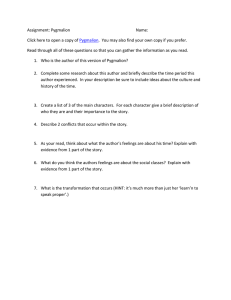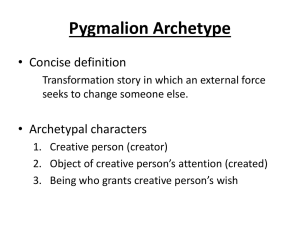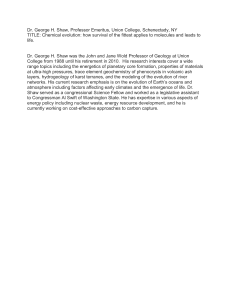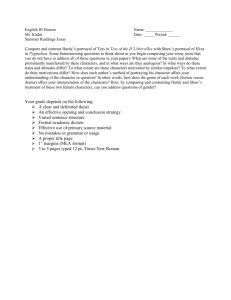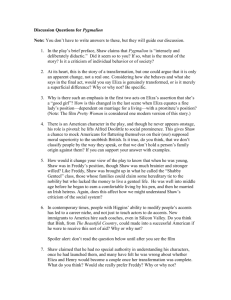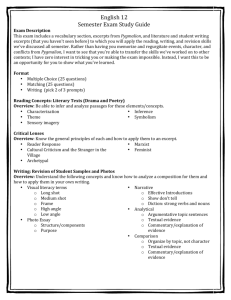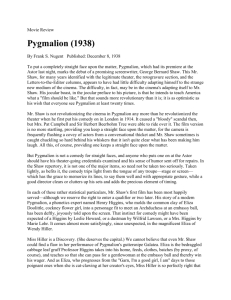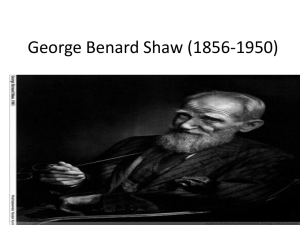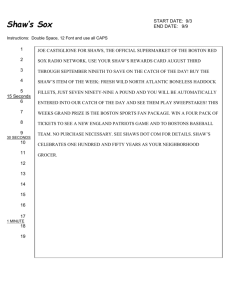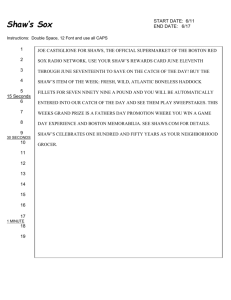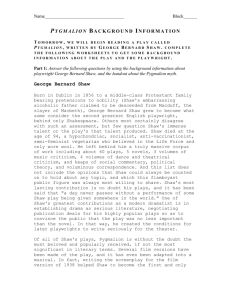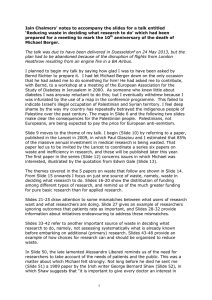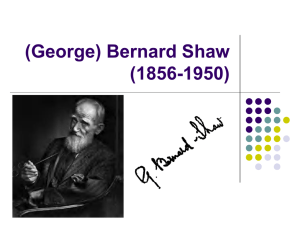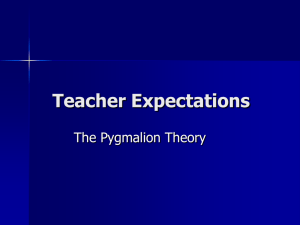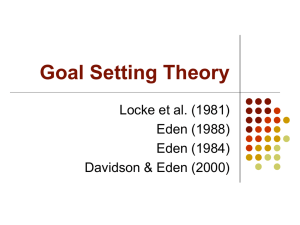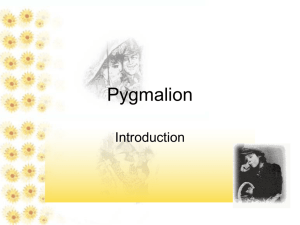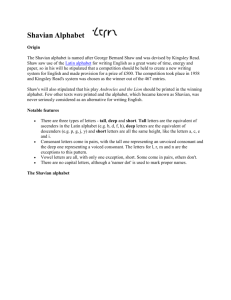Introduction to Pygmalion
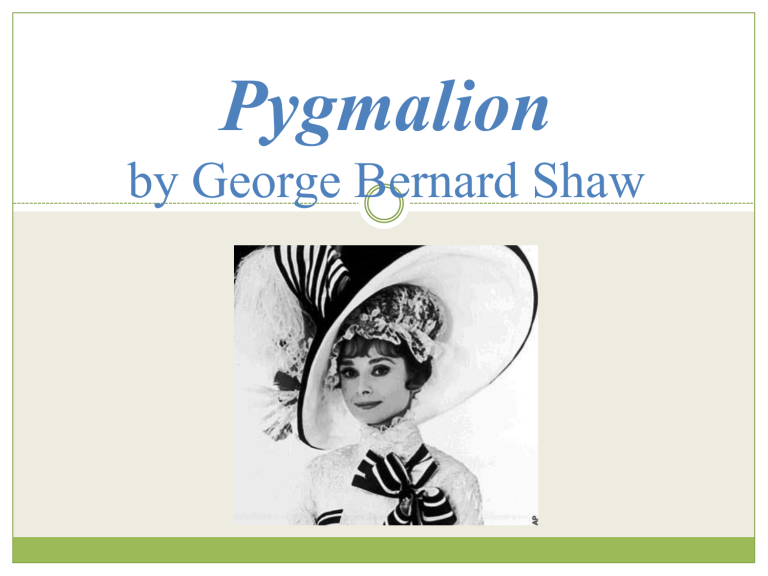
Pygmalion by George Bernard Shaw
AUTHOR:
George Bernard Shaw
Lived from 1856-1950
Very outspoken about politics and often criticized for his radical views
Won Nobel Prize for Literature in 1925
Believed that the transformation of the individual could lead to the transformation of society
SETTING
London 1912
During this era, both in the play and in real life, there were huge differences between the rich and the poor.
Social classes were clearly defined, and it was hard to move from one class to another.
Women did not have the same rights as men and were often looked at as inferior.
HISTORICAL CONTEXT:
Social Class
Upper Class: didn’t work, noble men and women
In the play: HOST and HOSTESS of the Embassy
Ball
Upper Middle Class: worked but were employed in safe, clean jobs (lawyers, doctors, professors)
In the play: HENRY HIGGINS, COLONEL
PICKERING
HISTORICAL CONTEXT:
Social Class
Lower Middle Class: worked in dangerous jobs and unsanitary conditions
Lower Class: did not work or worked little, had no financial freedom, were often servants
In the play: ELIZA DOOLITTLE
VICTORIAN ROMANCES
Pygmalion is not the typical romance we think of today.
Victorian romances, such as
Pygmalion set out to examine social issues.
They often showcased poor but honorable leading ladies and male protagonists who learned that wealth and social class do not define a person’s character.
SHAVIAN DRAMA
Shavian Drama is a type of politically and socially charged “discussion play” made popular by George
Bernard Shaw and Oscar Wilde.
In Pygmalion , Shaw tackles issues about women’s rights, language, social class, and the idea of selftransformation.

